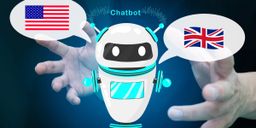Despite the great advances in artificial intelligence, it is necessary to take things slowly because there is still a lot of work to be done. These are some of the great limitations of AI today.
Artificial intelligence has advanced by leaps and bounds in recent years, creating innovative solutions and improving thousands of aspects of life – and everything that is yet to come.
However, despite the great achievements, it still faces significant limitations that restrict its ability to fully replicate human intelligence. So to speak, he is not omnipotent and is flawed or not capable of doing anything for society.
It is precisely these aspects that it has not yet been able to reach that must be known by companies, legislators and individuals, as it helps to set realistic expectations regarding this technology and ensures that the potential of AI is realized. logically without going through the roof.
The following limitations mentioned in this report demonstrate that AI still has quite a long way to go to fully match human intelligence and capabilities.
How far has artificial intelligence come? Understand the limits
Understand the context
First of all, lack of contextual understanding is a key limitation in AI. Although models can analyze large amounts of data, they often have difficulty capturing the full context and interpretation of the information, limiting their ability to understand the subtle meaning behind complex texts or situations.
Also, AI often struggles with reasoning out of context. Although you can learn patterns and rules from data, you find it difficult to apply that knowledge to new or different situations. So to speak, still lacks flexibility.
“AI systems are only as good as the data used to train them, and this data can be incomplete or skewed. This means that AI systems can be wrong when predicting outcomes, which can lead to dangerous or costly mistakes.” explains Óscar Castillo, Global Head of the BigData & IA practice.
Common sense
This ability that all humans have is also a big problem for the AI. The intuitive understanding and general knowledge that humans possess can be difficult to replicate. This at the end in what translates into incoherent or illogical responses in situations or conversations where it should be applied.
“The lack of common sense is evident in situations where humans would apply intuition and general knowledge to make decisions, which highlights the need for further research in this area,” adds Oscar Castillo.
Creativity and abstract thinking
Creativity and abstract thinking are other areas where AI still struggles. Although advances have been made in the generation of music, video or even works of art, the ability of AI to generate innovative ideas and perform abstract thinking to the extent that humans do is impossible.
If you realize it, it is you who gives the indications to the AI about what it should generate. You put the “base creative” in those cases.
“They are often black boxes that are difficult to understand and explain. This means that it can be difficult to understand why an AI system made a particular decision, which can lead to mistrust by some”, explains the expert.
language comprehension
Although AI systems have made progress in natural language processing, they still face challenges in fully understanding the meaning and intent behind words in different contexts. This can lead to misunderstandings and inaccurate answers.
He has no conscience or emotions
Finally, the lack of consciousness and emotions is a flaw, so to speak, key to artificial intelligence.
Although AI systems can recognize and process human emotions to some degree, they lack true subjective awareness and experience. They do not have a personal understanding of themselves or the world around themlimiting their ability to fully interact and understand the environment.
As you can see, there is still a lot of work to be done and despite the fact that there are currently voices of extinction or human replacement in their jobs globally —which cannot be denied either—, that is still many years away. Hopefully by then these potential dangers are resolved and legislated.





![[Img #74683]](https://thelatestnews.world/wp-content/uploads/2024/12/The-main-mistakes-to-avoid-when-betting-on-electronic-sports-150x150.jpg)








![[Img #74683]](https://thelatestnews.world/wp-content/uploads/2024/12/The-main-mistakes-to-avoid-when-betting-on-electronic-sports-300x200.jpg)

